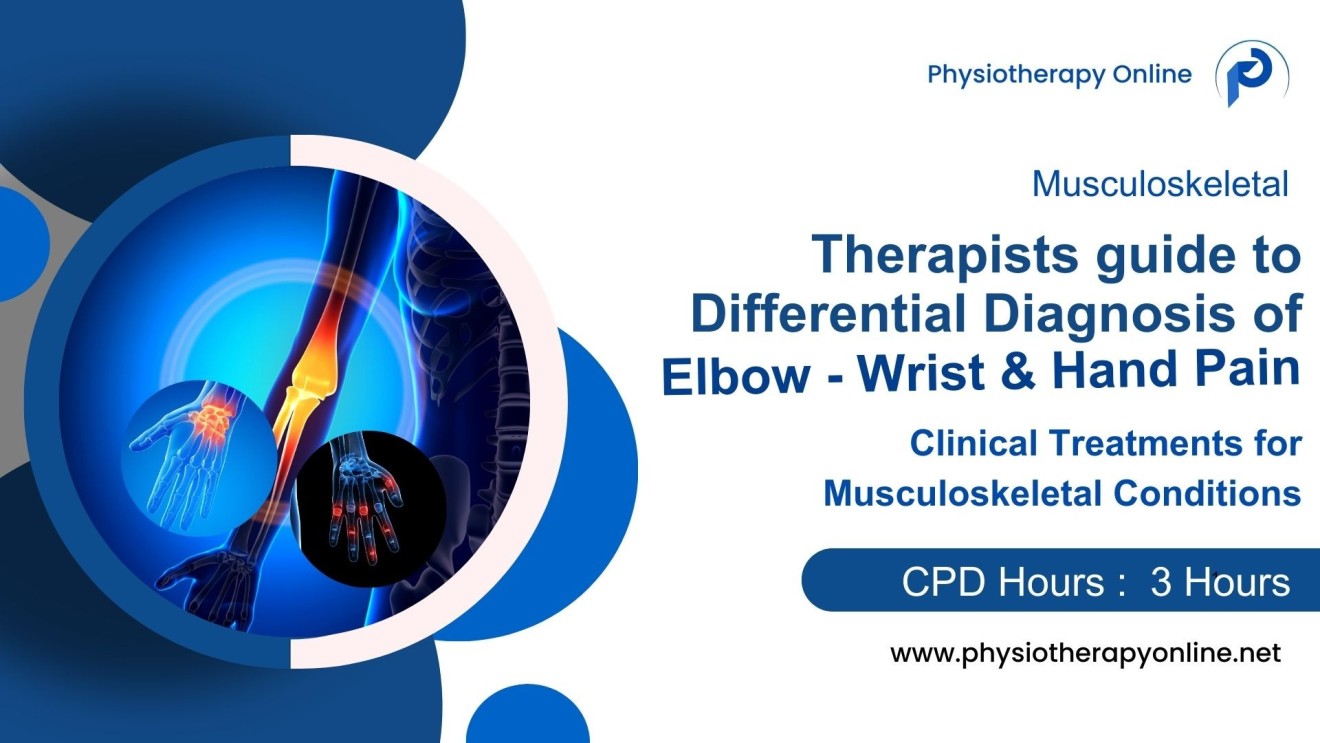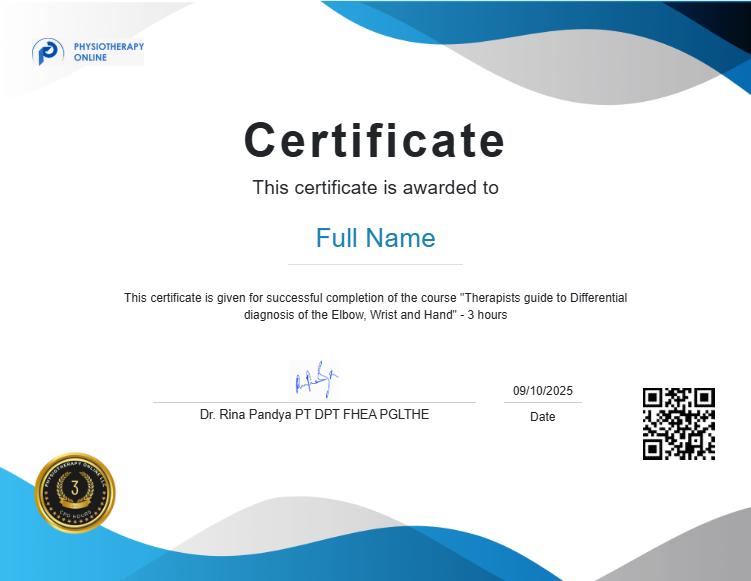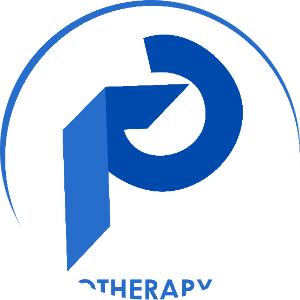About Course
Physiotherapy CPD Course Aims to
This physiotherapy CPD course aims to equip therapists with the knowledge and skills required to accurately identify and differentiate between various conditions affecting the elbow, wrist, and hand. By focusing on the principles of differential diagnosis, participants will develop the ability to recognize patterns of symptoms, interpret clinical tests, and apply evidence-based practices to enhance patient outcomes.
Overview of Differential Diagnosis for the Elbow, Wrist, and Hand
The elbow, wrist, and hand are complex anatomical regions susceptible to a wide range of musculoskeletal, neurological, and systemic conditions. Accurate diagnosis is essential for effective management and requires:
Understanding Common Conditions
- Elbow: Lateral epicondylitis (tennis elbow),cubital tunnel syndrome, olecranon bursitis, radial head fractures.
- Wrist: Carpal tunnel syndrome, De Quervain’s tenosynovitis, wrist sprains, triangular fibrocartilage complex (TFCC) injuries.
- Hand: Trigger finger, Dupuytren's contracture, rheumatoid arthritis, osteoarthritis, fractures.
Systematic Evaluation
- Comprehensive patient history to identify red and yellow flags.
- Physical examination techniques, including palpation, range of motion (ROM) testing, and special tests (e.g., Tinel’s sign, Phalen’s test).
Differentiation of Pain Sources
- Distinguishing between referred pain (e.g., from the cervical spine) and localized pathology.
Diagnostic Imaging and Investigations
- Indications for X-ray, MRI, and ultrasonography to confirm diagnoses.
Course Objectives
- Recognize Red Flags
Identify red flags in the differential diagnosis of elbow, wrist, and hand conditions and summarize guidelines for appropriate referral to a physician or emergency services when necessary. - Identify Systemic Causes
Understand and identify potential non-musculoskeletal or systemic causes of pain in the elbow, wrist, and hand, facilitating holistic patient care. - Differentiate Musculoskeletal Causes
Differentiate between various musculoskeletal conditions affecting the elbow, wrist, and hand based on clinical presentation, examination findings, and patient history. - Implement Evidence-Based Clinical Treatments
Utilize clinical treatments for musculoskeletal conditions of the elbow, wrist, and hand in alignment with the latest clinical practice guidelines and evidence-based research, aiming to improve patient function and reduce pain effectively.
Who Should Enroll
- Physiotherapist,
- Occupational therapist ,
- Geriatric Physiotherapist
- Sport physiologist
- Orthopedic
- Rhematologist
CPD Credit Hours
3 Hours
Resources
- 30 Days Access to Learning Resources
- Downloadable Course Material
- CPD Certificate
Disclaimer: Our online physiotherapy courses meet the criteria and guidelines for CPD (Continuing Professional Development). The CPD hours indicated on the certificate contribute towards fulfilling professional standards and requirements necessary for CPD audits conducted by the HCPC and AHPRA. These CPD hours are important for maintaining physiotherapy registration and ensuring compliance with CPD audit and Physiotherapy registration renewal processes. Our courses are recognized as valuable continuing education resources across the UK, Australia, New Zealand, and throughout Asia and the Middle East.


